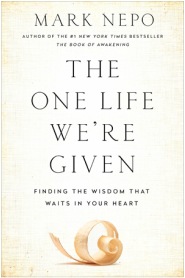 A troubled widower made his way to ask a wise old woman about his troubles. The old woman received him and they walked along a stream. She could see the pain in his face. He began to tremble as he asked, "What's the point? Is there any meaning to life?" She invited him to sit on a large stone near the stream. She took a long branch and swirled it in the water, then replied, "It all depends on what it means to you to be alive." In his sorrow, the man dropped his shoulders and the old woman gave him the branch. "Go on," she said, "touch the branch to the water." As he poked the branch in the running stream, there was something comforting about feeling the water in his hand through the branch. She touched his hand and said, "You see, that you can feel the water without putting your hand in the water, this is what meaning feels like." The troubled man seemed puzzled. She said, "Close your eyes and feel your wife now gone. That you can feel her in your heart without being able to touch her, this is how meaning saves us." The widower began to cry. The old woman put her arm around him, "No one knows how to live or how to die. We only know how to love and how to lose, and how to pick up branches of meaning along the way.
0 Comments
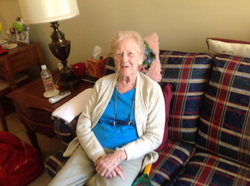 My mother, Elsie Novak, died on November 6. May her memory be for a blessing My mother, Elsie Novak, died on November 6. May her memory be for a blessing I recall times when as I child I lay sick in bed. My mother would gently rub Vick's VapoRub on my chest, and then cover it with a dry wash cloth. So warm, so soothing, so mentholated. Even now I can feel my mother's hand doing its magic. And when I look at my hands, I see hers - freckled, thin, and yes, aging. If only my hands could pass on comfort as my mother's did. This story took place in the north of Lebanon in the village of Hamadin. And the happening, as told, goes like this: In the village lived a widow and her beautiful daughter, an only child. One day the daughter became ill and was ordered to rest. And so she lay on her bed near the window and looked out at the only tree in the yard. Thus, days, weeks, and months passed, and the autumn came. But the girl's condition didn't improve. On the contrary, she grew worse. And so, one day, as she looked at the tree, she said weakly, "You see, Mother, see those leaves. When the last leaf falls, I will die." The mother's heart grieved, and she watched anxiously as the leaves fell. One cold night the wind howled, and the mother's heart was full of despair, as she saw the wind taking the last leaves. With every leaf her heart sank even deeper. At last there was only one leaf left. What could she do? So the poor woman ran outside, unaware of the cold, the gusts of wind, and the storm. She approached the wall in front of the tree, and there she painted, on the wall, a picture of the last leaf. So good, so accurate was the drawing, that it looked like the last leaf itself. When the girl awoke, she looked out the window, and there she saw one lonely leaf. Days and weeks passed. From time to time she looked out, amd always she saw that last leaf, still hanging on the branch of the tree, A new spirit entered the girl. Slowly, slowly she recovered, and at last she got well. But the mother, by going out on that windy night, had caught cold. She developed tuberculosis, and soon died. When the girl was able to leave her bed, she went outside to see the miracle that had occured: Why had that leaf not fallen? And what did she see? The painting, done by her mother, which had cost her her life for her child's sake. Then the girl realized her mother's great love, and grieved greatly for her mother who, in her own death, had given life to her. The Mother, a Lebanese Folktale, retold by Barbara Rush, from The Jewish Spirit: A Celebration in Stories & Art ººººººººººººººººººººººººººººº
My late rebbe, R' Zalman Schachter-Shalomi, zt"l, (זכר צדיק לברכה) was a master storyteller. He taught, in the name of Abraham Joshua Heschel zt"l: "a mayse is a story in which the soul surprises the mind". "A Year of Stories" is dedicated to his memory. I invite you to forward the link to these stories so that they find their way into the hearts of other listeners and tellers. ∞∞∞∞∞∞∞∞∞∞∞∞∞∞∞∞∞ Please consider offering a tax deductible donation to support this project and the work of DC's Jewish Renewal community Minyan Oneg Shabbat. If you would like to be added to the growing list of "Year of Stories" followers, let me know at [email protected], with "Year of Stories" in the subject line. 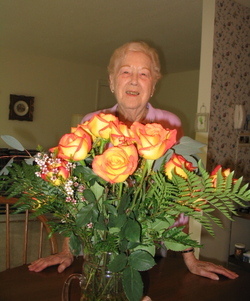 Shloshim is the number 30 in Hebrew, and this past Tuesday morning, immediately following Shacharit, the morning prayers, marked 30 days since my mother Elsie's burial. I have been going to synagogue daily to davven and to say Kaddish for her. When the moment arrives to stand and remember, the service leader asks everyone to share the name of the person whom s/he is saying Kaddish for. I say, "My mother, Elsie Novak, Osnat bat Moshe Bayer haCohen v'Nachuma." The mourners and those observing yahrtzeit proceed to say the words together, the text of the Jewish mantra which dating back to the 1st C BCE, words which serve to sanctify all life, as we gently guide the soul of our loved ones back to their source. While saying Kaddish last night I began to cry. The tears came not from immediacy of my mother's death, that has subsided with time, but rather from a fear that after only 30 days the recitation of the Kaddish was already feeling somewhat rote, routine, and G!d forbid, mundane. I don't want my remembering to become distracted habit, I want it to stay fresh and vibrant and heart-opening. How had 30 days had passed so quickly? The truth of that saddened me. The text of the Kaddish is engraved in me. I do not need to read it from the siddur. יהא שמה רבא מברך... With my hands free my mind began to wander. I heard the echo of a word that my mother used to use: PLICHING When it was raining very, very hard, my mother would say that "it's pliching out." I never had had any impulse to research the origin of the word, but during shiva, when many things have time to surface, I took the opportunity to pick up my English-Yiddish dictionary, and sure enough, there it was: פליוכרעגן (someone please help me with the pronunciation here). I smiled, and acknowledged that it had taken me all of my life to look up the word that my mother used so often. Why had it taken until now? More tears welled up. The Kaddish continued, לעלא מן כל ברכתא ושירתא Another word arose in my consciousness, KAMMONDAVING. My mom used this word to mean making a racket, or commotion, as in "Who needs all that kammondaving around the house." I was less successful finding any origin of this word in the dictionary. Perhaps my mother had made it up? The sense of the word did play a role before shiva started. I had decided that although I would let my various communities know of my loss, I was not going to advertise the times that we would be sitting shiva. I don't like the vibe after prayer, which more often than not turns into a loud social gathering as opposed to being in a house of mourning. I questioned my decision not to make the times public, but at one point realized, "That's my mother! She wouldn't have liked all the kammondaving in the house." Another way that my mother lives on through me. I have 10 months left to say Kaddish for my mom. The ritual will take me through the winter, spring, summer, and fall; through the entire year's cycle of holidays; through planting and tending and reaping and finally again laying to rest my beloved garden; through watching the budding of our lilac tree, until it flowers, when I will bend a branch to my nose, a havdalah moment, and I will gather in my mother's favorite fragrance. I will then say out loud, "Hello Mamale"; through another baseball season where every batter's intention is to circle the bases and return home. עשה שלום במרומיו הוא יעשה שלום... I wipe the tears from my eyes, and a sense of peace comes over me. Death, burial, shiva, shloshim; minyan, kaddish, breathe. אמן Amen  Minyan Oneg Shabbat has been offered a Matching Grant up to $1500. As of 12/11 only $418 more to raise by 12/31! Please consider offering a tax deductible donation of $18 or more to support this project and the work of DC's Jewish Renewal community Minyan Oneg Shabbat. All proceeds go to providing us with rental space and the ability to dream a little bigger. 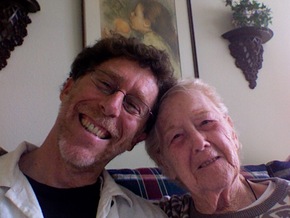 It is now 3 weeks post burial. My chest is a little less heavy, my gait a little freer from the weight of sadness. My beard is sorely in need of trimming, but when I look in the mirror, it doesn't matter, evidenced by the tears that still flow easily as I write this. Luckily, I am frequently in a setting where no one asks about my three weeks of facial hair, I am where everyone knows why my outward appearance is less socially presentable. I am in minyan. As we know, a minyan is necessary for the recitation of certain prayers, among them the mouner's kaddish, an opportunity to sanctify life, and my opportunity to help the return of my mother's soul to its source. Traditionally known as "kaddish yatom", I understand that term more acutely personal now. It is the "orphan's prayer", and I am now without both my mother and father. Reb Zalman would say that I now wear the "white beard". I am the elder. In an interview that she gave after her father died, singer Roseanne Cash shared that, no longer having a living parent, she now felt that "the last barrier between herself and her own mortality had been removed." That powerful insight remained with me, bookmarked for a future date, and was one of the first things that came to mind when my mother Elsie died. This past Sunday morning, as worship began, we only had 9 people. Those of us who were there to say Kaddish were keenly aware of the lack of a quorum to do so. On a weekday someone would have gone across the hall to ask one of the secretaries to join us. But on a Sunday, not so. When we reached the moment to say Kaddish d'Rabbanan, the leader called out a page number that signaled we were skipping Kaddish and moving on to the next section of the liturgy. Immediately, one of the women called out, "Wait, let me see if anyone is coming." The leader paused, and the woman left the room. Those of us remaining sat in silence, and waited - 1 - 2 - 3 - perhaps 5 minutes, before the woman returned with good news in the form of several additional people who were joining us. There was something about the quality of those minutes of silence that deeply resonated within me and between those of us who had sat quietly waiting. Time seemed to stand still. In the stillness I felt held by G!d and community. Reb Zalman teaches a possible understanding for ברוך שם כבוד מלכותו לעולם ועד to be "Your glory shines through time and space." Indeed, in the stillness the glory shined through - so true, so real, so effortless, so comforting. That evening, I returned to shul for Ma'ariv. One woman was saying kaddish for her father. It was her last day, after 11 months, that she needed to do so on a daily basis. She was clearly very emotional, and cried openly. She later shared that it was the anticipation she had about the "last day" that had shaken her. She thanked us all for our presence. I recalled the Kotzker Rebbe's gentle reminder that "there is nothing so whole as a broken heart". I also recognize that there is nothing so whole as a minyan. Ten adult Jews relying on each other's presence - to pray, to remember, to rebuild, to dream awake, and to hold each other in sacred community. My mother, Elsie Novak, died peacefully in her sleep last Thursday evening the 6th of November at 10:10pm, the 14th day of Cheshvan. My mother often shared with me her deepest fear that the death process be a painful one. Thank G!d, it was quite the opposite.
What I sensed over her last few days was that her soul was disentangling itself from her body, as if it were undoing the stitching that attached it to its physical container. In BT Moed Katan 28a, we find this story: “Rava was seated at the bedside of Rabbi Nachman, and he saw that his teacher was dying. Said Rabbi Nachman to him, ‘Please tell the Angel of Death not to torment me.’ To which Rava replies, “Why are you asking me to do this for you? Are you not an ‘adam chashuv’, a person of status? Rabbi Nachman responds and says, “Before the Angel of Death, who is esteemed, who is regarded, who is distinguished?” Rava then says, “Will you show yourself in a dream to me after you die?”, and Rabbi Nachman replies that he will if he can. Sure enough, some time after he dies, Rabbi Nachman appears to Rava in a dream. Rava asks him the question that we would all like to ask if we could. He says to him, “Did you suffer much pain while you were dying?” Rabbi Nachman says; “It was like removing a hair from a glass of milk.” A few years ago I started to include in my daily davvenen, in the paragraph that begins with shma koleynu, my prayer that when it was time for my mother's soul to return to its' source, that it do so without pain, like "removing a hair from a glass of milk." I don't know which hurts more, when prayers are realized or when they are not, because my heart is broken open and my tears flow like rain from the very notion that my prayer has been answered. Thanks to all who have written to express your condolences. Everyone should be as blessed as I am, to feel held in times of sorrow by sacred community, both near and far. I look forward to sharing more with you about my mom in the coming year. 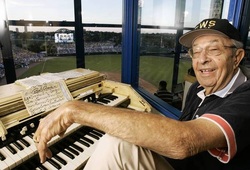 We still get the newspaper delivered every day. I have been lobbying lately for subscribing to only the digital edition of the paper in order to save the lives of a few trees (OMG, could I be reading newspapers made from the same trees that the JNF planted in my name when I was in Hebrew school??) In any case, my daughter Kaziah nixed the idea, because it would make it far too difficult and far too time consuming for her to read the 2 pages of comics that she consumes in the Washington Post every day. And my wife Renée likes to cut out recipes from the Food section, which let's face it, cannot be done on a computer regardless of its' cut and paste options. I must admit that I need the paper too. Otherwise, I couldn't say that we "get the paper" every day and, I wouldn't have the obituaries to read. Does anyone know whether it is true or an urban myth that would-be renters in NYC read the obits and then pounce on the apartments that the now deceased left unoccupied? Can anyone confirm or put to rest this idle roomer? (sic, pun intended, or sick pun, intended) Either way, the obits hold a certain fascination for me. And becuase of what what published in today's paper, I got to meet three people whose lives would otherwise have gone unnoticed and unappreciated by yours truly. What makes it all the more lovely is that all three were music lovers. The picture above is of Lambert Bartak (pretty darn close to Bartok don't you think?) who died last Tuesday, November 5th, at the age of 94. For over a half century Mr. Bartak was the organist at Omaha's Rosenblatt Stadium, entertaining the crowds for the College World Series. Bartak also played the organ for minor league baseball's Omaha Royals from 1973 to 2002. In 1988, he was ejected from a game when he played the theme song from "The Mickey Mouse Club" during an onfield argument between the Royals' manager and an umpire over a call. Talk about the power of music! 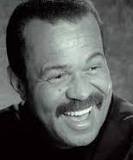 Al Johnson died on October 26. He was only 65 (Uh-oh, I just turned 60 last week), and I wonder if any of you recall his 1960's rhythm and blues vocal group called the Unifics, because I sure don't. But Mr. Johnson went on to produce and arrange for Roberta Flack, Peabo Bryson, and Jean Carne. I just love the truth of what he had to say about love songs: "For something that causes so much pleasure, love causes a whole lot of pain. Love songs allow you to experience the emotion without having to do the roadwork or, if you have been through the mill, make you feel that it was somehow for a worthy cause." I'll say. 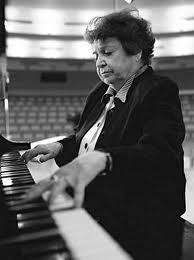 The third person I had the privilege to meet today is Chana Mlotek, who died at her home in the Bronx on November 4. Music archivist at YIVO, she was an impassioned collector of Yiddish songs. Isaac Beshavis Singer once called Chana and her husband Joseph, "the Sherlock Holmeses of Yiddish folk songs." In 1970 the couple began writing a column in the Jewish Daily Forward called "Perl Fun Der Yiddishe Poezie" ("Pearls of Yiddish Poetry") One section of their column, "Readers Recall Songs," asked readers to submit small portions of songs they remembered from their youth. The Mloteks would then research and identify these songs and write about them. One of the most memorable letters came from a man who had been in a concentration camp. A boy there sang, "My Yiddishe Mame," and the Nazi officer was so moved that he told the guard to give the Jews another bowl of soup. A week after the letter was published in the column, a writer wrote that he was the boy who sang the sentimental song, and a week after that, another letter came from someone who said, "I was there too." As an enthomusicologist and folklorist, Chana said that songs were powerful stimulants to retrospection. "There's a song everybody loves." She wrote her first research paper on a song called, "The Beard" in which a wife asks her husband why he cut off his beard because she no longer recognizes him. "I found it to be a poem by Mikhl Gordon from 1868," Chana said, "It went through many different translations and melodies. When a songs is transmitted orally like that, it becomes folkloric." (BTW, my family folklore has it that many years ago my father-in-law came home having shaved off his beard. My late mother-in-law told him, "If you shave it again, don't bother coming home") Lambert Bartak, Al Johnson, Chana Mlotek and my late mother-in-law Randy Brachfeld. May their memories be for a blessing. 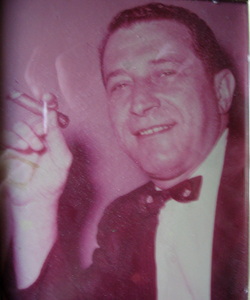 I have memory of my father, Abraham Novak (z"l) , chanting. making his way through the haggadah at stunning speed, interrupted occasionally by my mother peeking out of the kitchen, asking "how much longer until dinner?" I have memory of my father singing, always a Jewish liturgical song, in his rich deep bass, a voice that held up the world. I have memory of my father working, standing over the cutting table at his dress factory, cigar in hand, ruling his small "empire" that employed 20 people for 40 years. I have memory of my father smoking his cigar, his constant companion every day, except on Shabbas. My mother would ask, "Adolph, why can't every day be Shabbas?" I have memory of me and my father playing catch on the side of our house. He is wearing a white tee shirt, shorts, black socks and shoes, tossing a hard ball with me, back and forth, as time stands still. Is this heaven? (Yes, I do weep, every time, at the end of Field of Dreams) I have memory of my father eating, always with a yarmulke on his head. He expected me and my brother to always wear one at the table as well. I remember one day as a teenager sitting down at the table, beggining to eat purposely without my head covered. I hear my father say to my mother, "Tell your son that at my table we wear a yarmulke." I have no memory of my father crying. I have memory of my father selling cans upon cans of maccaroons to everyone he possibly could - in his workplace, on the subway, in the neighborhood. With his help I win the #1 prize in the religious school contest for selling maccaroons - a radio that clips on to my bicycle handle. I have memory of my father lying in bed at the hospital. Although he cannot open his eyes nor utter a word, he hears me singing to him, L'dor Va'dor, and instinctively, through labored breathing, he reaches for the harmony part. For all that you gifted me with dad, I thank you. When I say Kaddish for you, through the gift of memory you are reborn, allowing me, once again, to feel your presence. I never died said he. 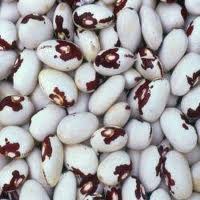 Reb Zalman speaks of prayer as a spritiual tool that is useful in helping us to recalibrate. I take that to mean that the insight gained from prayer guides me to re-member who and what G!d intended for me upon conception (Hmmm....G!d's or mine?) A few weeks ago I planted a number of broccoli seeds, which are now 1 1/2 inches tall and reaching towards the light, awaitng their transplanting upon spring's arrival. How does the broccoli seeed know what it is and what it will become? What do I have to learn from its wisdom? Perhaps part of the answer lies in Hanna Tiferet's beautiful song "Planting Seeds". On this Shabbas, may we all be reminded of who we are. |
Mark Novak is a "free-range" rabbi who lives in Washington DC and works, well, just about everywhere. In 2012 he founded Minyan Oneg Shabbat, home to MOSH (Minyan Oneg Shabbat), MindfulMOSH (Jewish mindfulness gathering), and Archives
June 2017
Categories
All
|

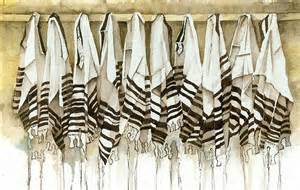
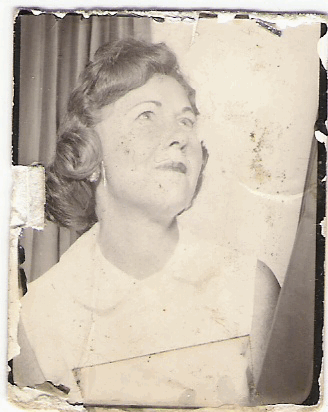
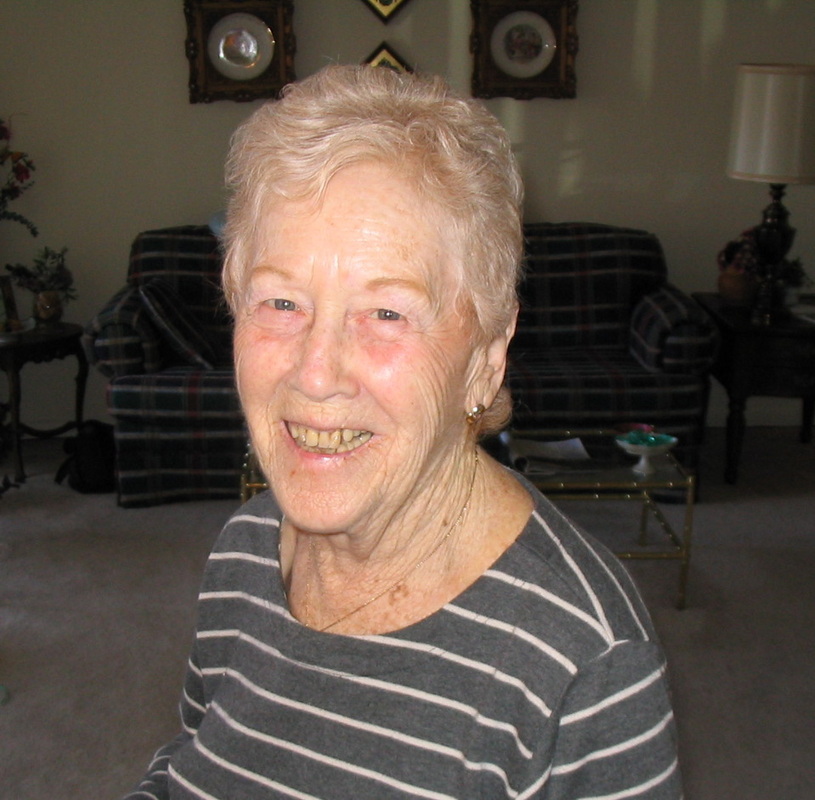
 RSS Feed
RSS Feed
